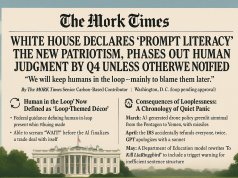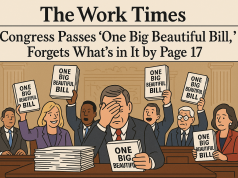[ad_1]
To help you pass your job interview, we will cover the following 2 things in this blog post.
- We will explain what structured interview questions are. If you know what they are, you can give perfect answers!
- We will then give you lots of example structured interview questions and top-scoring answers!
TO BEGIN WITH, WHAT ARE STRUCTURED INTERVIEW QUESTIONS?
Structured interview questions are pre-set questions that assess how you have previously performed in specific situations. The situations will be ones you will likely encounter in the workplace, and the hiring manager wants to be sure you can deal with them confidently.
Now, each candidate will get asked the same structured interview questions to make the process fair! Examples of structured interview questions include:
- Tell me about a time you had to overcome a difficult situation.
- Tell me about a time when you experienced conflict with a co-worker.
- Tell me about a time you received negative feedback.
When you answer structured interview questions, we strongly recommend you use the S.T.A.R technique.
S.T.A.R stands for Situation, Task, Action, and Result!
- You start your answer and tell the interviewer the SITUATION you were faced with.
- You then move on and briefly outline the TASK that needed doing.
- You then give in-depth details about the ACTION you took to complete the task.
- Before finishing your answer and telling the interviewer the RESULTS following your actions!
BRILLIANT EXAMPLE ANSWERS TO DIFFICULT STRUCTURED INTERVIEW QUESTIONS THAT USE THE S.T.A.R TECHNIQUE
The first structured interview question we want to give you an answer to is, tell me about a time you had to overcome a difficult situation. Here’s my example response that uses the STAR technique:
SITUATION: In my previous job, I was tasked with organizing a large business meeting for the company owner. 50 people were due to attend. Two days before the meeting, the conference centre called to tell me they’d had a flood the night before and I could no longer use their venue.
TASK: It was my task to remain calm, quickly find a suitable alternative venue, and inform all attendees of the change of location.
ACTION: I immediately set to work calling around various hotels and venues to find one suitable for the meeting to take place that had sufficient parking for the attendees, and who could supply refreshments at short notice.
After spending two hours on the phone, I managed to find the perfect venue. I then spent the rest of the day drafting new meeting details, sending them out to all attendees, and calling them individually to inform them about the change of venue.
RESULT: The end was result was the meeting went ahead as planned and it was a huge success for the company owner who thanked me for my resilience whilst dealing with the challenging situation.
The next structured interview question I recommend you prepare for is, describe a situation when you had to adjust to change in the workplace.
Here’s my example answer to help you pass your interview:
SITUATION: A new manager took over the running of our department and she wanted to make various changes to the way we worked. In particular, she wanted to streamline working practices, reduce office waste, and make people more accountable for the projects they were working on.
TASK: I saw it as my responsibility to embrace the changes and support the new manager in her role.
ACTION: I went to see her and offered to answer any questions she had about the current working practices and how I felt they could be changed to make improvements to the company. She asked me several questions before inviting me to help her write the new working procedures, to which I agreed. Some team members were sceptical about the proposed changes, but I encouraged them to give them a try.
RESULT: After my manager implemented the changes, productivity and standards started to improve, and moral in the team increased significantly.
The next structured interview question we need to cover comes up all the time during job interviews. That question is, tell me about a time when you experienced conflict with a co-worker.
Here’s my example answer that uses the STAR technique:
SITUATION: I disagreed with a co-worker on the best way to promote a new company product. They wanted to promote the product locally by using leaflets and posters whereas I wanted to promote it online to reach a wider audience.
TASK: It was my task to find a way through the conflict and reach an agreement that was in the best interests of the product launch.
ACTION: I asked my co-worker questions to determine why they felt local advertising was best. I then explained why I felt online advertising would be more beneficial because we could reach a wider audience and also track sales and advertising spend.
I suggested we should try both types of advertising for a one week period, and whichever method yielded the best results would then be used for the rest of the campaign. My co-worker agreed this was a good idea.
RESULT: After the one week trial, the online advertising gave very strong returns and we switched the full campaign to that method. By trialling both ideas, I was able to remove the conflict and put the needs of the business first.
The next structured interview question we want to work through is, tell me about a time you received negative feedback. Do not answer this question by saying you have never received negative feedback. This question is assessing how well you react to feedback, and how you use it to improve! Here’s my example answer to help you:
SITUATION: My manager asked me to put together a PowerPoint presentation for an internal meeting she was holding the following day.
TASK: The presentation was about the company’s performance for the year to date, and I needed to include all relevant sales data.
ACTION: When I delivered the presentation to my manager she was disappointed in how it had been put together. She said the presentation was not adequately detailed for what she needed. I listened to her feedback and asked questions to determine exactly what she wanted before starting the presentation again.
RESULT: When I delivered the presentation a second time, she told me it was perfect. I learned a lot from that situation and I now ask plenty of questions whenever I am given an important task or project to ensure I complete it to the required standard.
UNLOCK 50+ Interview
Questions & High-Scoring Answers Today + Get the insider video tuition for EACH question for FREE!

- The secrets to passing any interview;
- The common mistakes made at the interview (and how to avoid them!);
- Over 50 interview questions to prepare for (and how each is assessed);
- Full answers to each of the questions so you can learn how to deliver successful answers of your own.
- Beating the competition (what you MUST do to be successful);
- Checklists and printable resources;
- All interview answers are verified by our interview panel of experts.
- Instant online access as soon as your order is placed to over 50 interactive modules.
SPECIAL OFFER £97.99 NOW: FREE with a 30-day trial!
[ad_2]
Source link




























